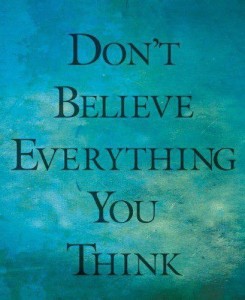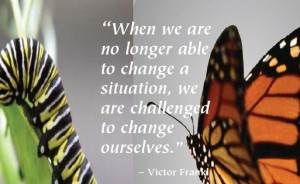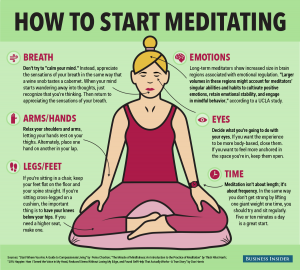by Cynthia Bischoff | Nov 18, 2018 | Heartliving
 As we approach our Thanksgiving week, we reflect on numerous traditions for giving thanks. Some people have shared with me that at Thanksgiving dinner as a child, they were asked to express something for which they were grateful. While it is one of my favorite holidays, Thanksgiving is not the only day to focus on “thanks-giving”!
As we approach our Thanksgiving week, we reflect on numerous traditions for giving thanks. Some people have shared with me that at Thanksgiving dinner as a child, they were asked to express something for which they were grateful. While it is one of my favorite holidays, Thanksgiving is not the only day to focus on “thanks-giving”!
There are important reasons for giving thanks on any day of any week:
- Your emotions are your most sophisticated way to know what is going on for you.
- Your emotions at any given moment help you know whether or not you are resisting life or allowing it.
- You can actually change your emotional grooves and allow the details of your life–your response to life–to play out differently.
- While you can’t always control your thoughts, you can guide them.
- Allow yourself to witness a larger picture of your circumstances and your world and decide to feel blessed, expecting good to come to you.
- Decide that your world is a kind one and that you deserve goodness.
- Feel better first and then your vibration will change.
- Know that you are an integral part of life itself and that the Universe blesses you.
- Let yourself feel blessed.
- Give thanks for blessings now and on the way.
You see, to the degree that you feel blessed and expect good things–that indicates your degree of allowing good to come to you. So put on some music, do something you love, call a friend, help another, say a prayer–above all, expect good things to come to you and give thanks!
by Cynthia Bischoff | Oct 28, 2018 | Heartliving
 O Great and Holy Spirit, whose voice I hear in the wind, whose breath gives life to all the world, hear me.
O Great and Holy Spirit, whose voice I hear in the wind, whose breath gives life to all the world, hear me.
I need your strength and your wisdom.
Let me walk in beauty and make my eyes ever behold the red and purple sunset.
Make my hand respect the things that you have made, and my ear sharp to hear your voice.
Make me wise so that I may understand the things that you have taught my people. Help me to remain calm and strong in the face of all that comes toward me.
Let me learn the lessons hidden under every leaf and rock.
Help me seek pure thoughts and act with the intention of helping others.
Help me find compassion without empathy overwhelming me.
I seek strength not to be greater than my brothers and sisters, but to fight my greatest enemy–Myself.
Make me always ready to come to you with clean hands and stright eyes, so that when life fades as the fading sunset, my spirit will come to you without shame.
All my relations.
Source: A Sioux Prayer
by Cynthia Bischoff | Oct 14, 2018 | Heartliving
 Within each of us is a critic that seems to confront us at different levels of our growth. For some of us, this critic is very active and sometimes even attacking—evaluating our every move, telling us when we are successful, “good,” acceptable, and when we are not.
Within each of us is a critic that seems to confront us at different levels of our growth. For some of us, this critic is very active and sometimes even attacking—evaluating our every move, telling us when we are successful, “good,” acceptable, and when we are not.
If you are constantly asking yourself: “Do I have what it takes? Does so-and-so really care about me? Am I attractive?,” and so on, then the underlying belief that appears to drive the questions is the idea that you lack something important or don’t have what it takes. The unconscious reality is a lack of contact with your soul’s true nature. This lack of contact expresses itself as a lack of self-esteem.
The bodily experience in these cases is often one of emptiness. Instead of listening to the critic or trying to deny the critic voice, a way to stop the self-attacks may be to allow yourself at first to feel the emptiness—to feel your sadness and emptiness fully—and then to choose to move beyond it. Remember, “the only way out is through.”
It is important to understand that the inner critic has a profound distrust of your ability to handle this very moment. It compares you to the past and measures you against the future. In order to move beyond this judge, it is essential to trust that you have complete power over this very moment and how you live it. Repeat to yourself in your moments of challenge, “Up until now…” knowing that at this very moment, your entire life can change, that now you can choose to.
Our inner judge often asks us to rely on past beliefs in order to exist. Its ongoing saga is that nothing good will happen in the current moment, and it tries to maintain a fixed sense of who we are. Once you recognize that you are giving this judge your power, you can also choose not to give it. Instead of letting the judge deny your soul its potential, you can disengage from it. You can recognize the critic’s voice as one of sabotage and choose not to finance the negative relationship with the critic any longer. And, of course, you can remind yourself of one thing: You are worthy.
by Cynthia Bischoff | Sep 30, 2018 | Heartliving
 Do you find yourself engaging in the same old behaviors even though you want your life to change? You are not alone. Most people continue to do what is familiar without realizing that by “doing what they’ve always done, they get what they’ve always gotten.”
Do you find yourself engaging in the same old behaviors even though you want your life to change? You are not alone. Most people continue to do what is familiar without realizing that by “doing what they’ve always done, they get what they’ve always gotten.”
So how do you break free of negative reactionary behavior? For starters, to break an old behavior or pattern you have to create awareness, be willing to respond differently, and do what I refer to as “practice the pause.”
Gain Awareness
The first step in redirecting any behavior is to gain awareness about what is happening. Although you may be aware of the many ways in which a negative behavior does not serve you, it is important to recognize that the behavior would not continue to exist unless there were some hidden benefit. In fact, the key to change is in realizing WHY you are repeating the same response.
Let’s examine the desire to stop procrastinating. While you may want to stop procrastinating because you feel it has negative consequences–such as, it may create a bad reputation for you or cause you stress–you have to ask yourself what purpose or benefit procrastination does provide for you?
While you may be thinking that it doesn’t provide any benefit, that would not be true. If it didn’t you would easily stop doing it. So what if the following benefits were possible?: What if by waiting long enough, you escape doing the thing you don’t want to do after all? Or what if you are a perfectionist and give yourself less than ample time to create your project so you can better rationalize a less-than-perfect outcome? The key is to more deeply explore what you are gaining by doing that which you want to change!
Be Willing to Respond Differently
Once you have identified what you are gaining, you have to decide whether the benefit of a new choice outweighs the familiarity of the old. If it does, are you willing to change? No matter what has happened (even if throughout an entire lifetime), you can use three simple words to inspire yourself– “up until now” (Remember my YouTube HeartlivingVideo)–knowing that now you can do it differently. Your knowledge is not complete unless you act on what you know.
Practice the Pause
So how do you create a change? How do you hold conscious intent? You decide to “practice the pause.” When you notice you’re about to engage in a maladaptive behavior or when you feel “stuck,” literally pause for at least six seconds (research validates that pausing triggers a different response in your amygdala—a part of the brain) and then respond rather than react. The pause allows you to hold a different consciousness, one more aligned with your new goal.
The pause also allows you to lead from your heart intelligence. With growing awareness and new methods of responding, you can begin to redirect your behaviors to reflect greater peace and understanding.
Above all, know that you are writing the story of your life every breathing moment. You are not trying out for a part in someone else’s drama. You are the author and the director of your own life. As you begin to pause and respond to life circumstances, rather than to react, you will literally change your story and change your life!
by Cynthia Bischoff | Sep 23, 2018 | Heartliving
 Many people express an interest in meditation but feel they don’t have time to meditate. Some say that finding 20 minutes to do “nothing” is not possible in their daily life. Meditating is far from “doing nothing”; when you center your mind and release anxiety, you bring restoration and balance to your whole system. In fact, research shows that meditation:
Many people express an interest in meditation but feel they don’t have time to meditate. Some say that finding 20 minutes to do “nothing” is not possible in their daily life. Meditating is far from “doing nothing”; when you center your mind and release anxiety, you bring restoration and balance to your whole system. In fact, research shows that meditation:
1. Enhances the immune system.
2. Lowers and/or stabilizes blood pressure.
3. Slows the aging process.
4. Improves learning ability and memory.
5. Develops your willpower.
6. Decreases restless thinking.
7. Brings your body, mind, and spirit into harmony.
You do have to find time to meditate. You should choose a time of day when you are least distracted and are able to be calm. You might want to start with a 5-minute meditation and try different lengths of time as you explore the process.
Also, decide on a comfortable posture. While most teachers suggest sitting positions, I have always found my best meditations occur when I lie down, and surprisingly, I do not fall asleep. Try different postures to find what works best for you.
If you are seated, you might try staring at an icon (religious figure, candle, etc.), and in doing so, allowing yourself to “empty” your mind. If you are lying down, you can stare at the ceiling.
Be patient with yourself, so if many thoughts come racing through your head, simply allow them to clear. You may wish to focus on one word (such as “love”) to center yourself.
You can also practice the simple technique that I call “stopping.” Simply sit for five minutes each day and allow your body to rest. Take a few deep breaths and be still. In that moment, be with whatever comes up, and let your mind slow down until your body, mind, and spirit feel in greater harmony.
 As we approach our Thanksgiving week, we reflect on numerous traditions for giving thanks. Some people have shared with me that at Thanksgiving dinner as a child, they were asked to express something for which they were grateful. While it is one of my favorite holidays, Thanksgiving is not the only day to focus on “thanks-giving”!
As we approach our Thanksgiving week, we reflect on numerous traditions for giving thanks. Some people have shared with me that at Thanksgiving dinner as a child, they were asked to express something for which they were grateful. While it is one of my favorite holidays, Thanksgiving is not the only day to focus on “thanks-giving”!


 Do you find yourself engaging in the same old behaviors even though you want your life to change? You are not alone. Most people continue to do what is familiar without realizing that by “doing what they’ve always done, they get what they’ve always gotten.”
Do you find yourself engaging in the same old behaviors even though you want your life to change? You are not alone. Most people continue to do what is familiar without realizing that by “doing what they’ve always done, they get what they’ve always gotten.” Many people express an interest in meditation but feel they don’t have time to meditate. Some say that finding 20 minutes to do “nothing” is not possible in their daily life. Meditating is far from “doing nothing”; when you center your mind and release anxiety, you bring restoration and balance to your whole system. In fact, research shows that meditation:
Many people express an interest in meditation but feel they don’t have time to meditate. Some say that finding 20 minutes to do “nothing” is not possible in their daily life. Meditating is far from “doing nothing”; when you center your mind and release anxiety, you bring restoration and balance to your whole system. In fact, research shows that meditation: